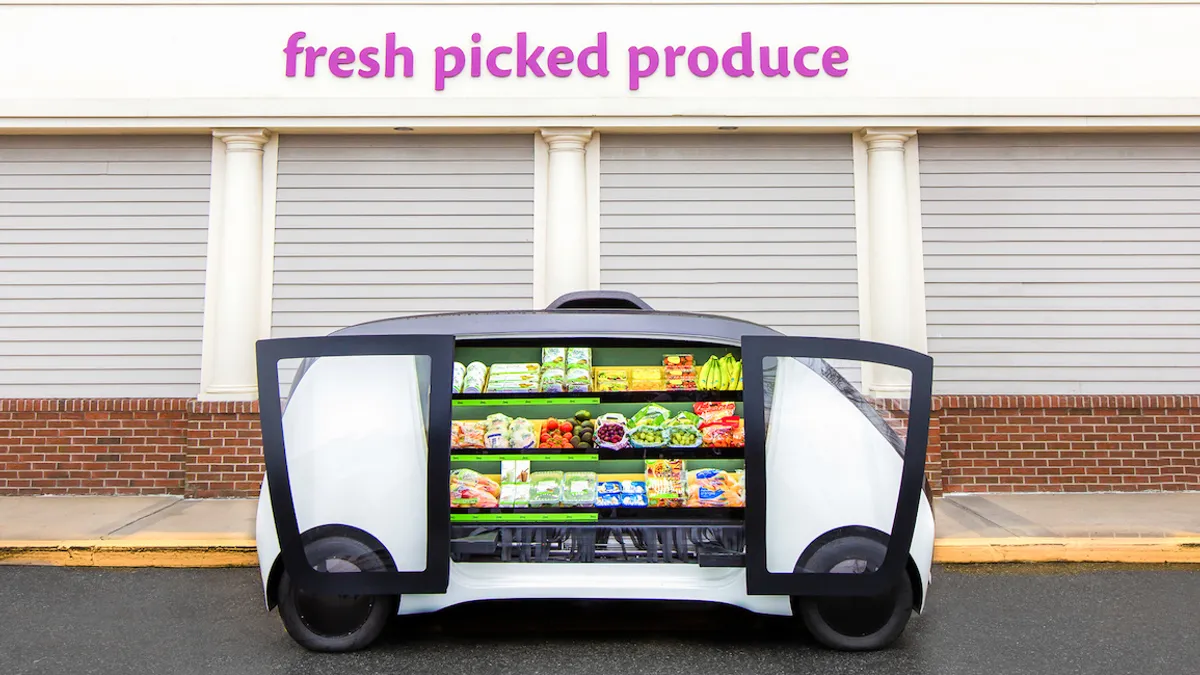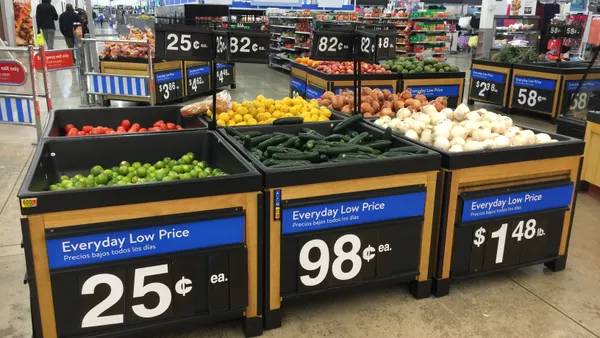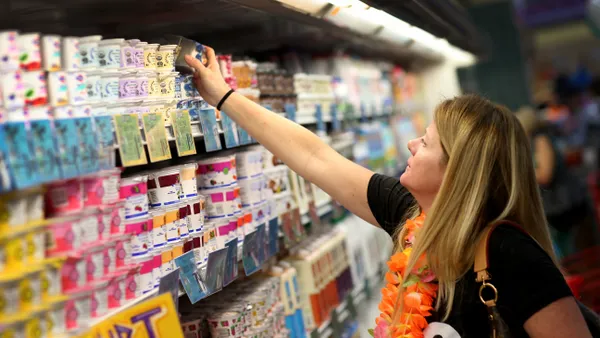Dive Brief:
- Stop & Shop will pilot driverless grocery vehicles this spring in the greater Boston area this spring, according to the retailer. The electric vehicles, which are built by San Francisco-based Robomart and operated from a remote facility, will enable customers to grocery shop from their doorstep without having to place orders in advance.
- Boston area shoppers who want to purchase from a Robomart vehicle can request one through a smartphone app, and the vehicle will arrive at their location with a selection of fresh produce, meal kits and convenience items from Stop & Shop. Customers will be able to unlock the vehicle and personally select their groceries. Computer vision technology will record the order and provide a checkout-free experience and mobile receipts.
- “This is one way in which we’re leveraging new technology to make shopping easier for our customers – by essentially bringing the store to them,” said Mark McGowan, Stop & Shop President, in a press release. “We also recognize that many of our customers want the opportunity to make their own choices when it comes to fresh produce, and we're proud to be the first retailer to engage with Robomart to address our customers’ needs with their cutting-edge solution.”
Dive Insight:
The launch of autonomous vehicles will help Stop & Shop extend the reach of its grocery stores beyond its traditional brick-and-mortar format and offer a convenient option that could also save money for the retailer — and ultimately for shoppers. This may be particularly relevant to the grocer’s millennial shoppers who are better accustomed to e-commerce innovations, as well as shoppers who live in more urban neighborhoods where a traditional grocery trip can be a hassle.
As one of the first retailers to offer the futuristic service, and the first in Boston, Stop & Shop can seize the opportunity to position itself as an innovator and shed its traditional image. A few other grocery companies have tested driverless technologies, primarily for delivery fulfillment. Kroger was the first to put autonomous vehicles on the road last summer during a pilot program with Nuro, which served Fry’s Food Store customers in Arizona. Walmart has worked with Waymo, Ford and Udelv to test driverless grocery delivery in Arizona and Florida. On the grocery startup side, Farmstead is also working with Udelv, and GrubMarket has a pilot program for driverless delivery with AutoX.
Stop & Shop’s Robomart vehicles stand out because they are not offering last-mile delivery fulfillment like Udelv and Nuro. Rather, they are providing a mobile grocery store experience that will allow for quick, last-minute purchases for shoppers who simply want to grab a meal kit for dinner or a few fresh produce items – no advance planning or ordering required. Stop & Shop will regularly restock the vehicles to make sure customers have access to fresh selections.
One possible drawback with this model, which the grocer may have to address in time, is the limited assortment. Shoppers in Boston can already get Stop & Shop home delivery via Instacart, and they may have to supplement their quick purchases from the Robomart vehicles with larger online order, store trip or curbside pickup, which takes away from Robomart’s convenience factor. It's also crucial that Robomart vehicles be able to reach shoppers in a timely manner. If customers have to wait two hours for Robomart to show up, that detracts from the experience and could hurt Stop & Shop's brand.
The pilot project with Robomart comes after a $70 million remodel that Stop & Shop revealed at 21 stores in the Northeast last fall. In addition to improved food experiences such as meats from an in-store smoker and a poke bowl station, Stop & Shop’s stores were upgraded with frictionless checkout and an online pickup area. It’s clear that Ahold Delhaize is focusing heavily on modernizing the Stop & Shop banner with technology at the forefront. Over time, these various tech-driven and e-commerce elements could make an impact on the company's strained bottom line.













